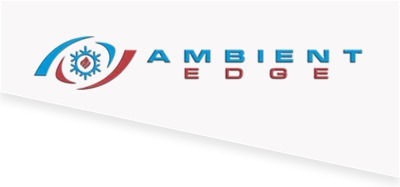When it comes to doing SEO, industry professionals use specific tools. The reason why we use tools is that they help us work smarter and faster. The difference a good tool can make is immeasurable, such as the difference between spending 10 minutes on a task versus spending all day. The efficiency of a tool can help you accomplish more while doing less and increase your ROI (return on investment). The less time spent on a task, and the better results you get, the more your ROI improves. Although these tools can benefit a business when used correctly, there are some misconceptions about such tools among business owners, and we wanted to take the opportunity to address some of them now.
Some business owners have a mistaken impression that tools are used for nefarious reasons. This is not true. Many tools can be used for good reasons that have nothing to do with harming a site, depending on the task you want to perform. If you want to do a site audit, you could use SEMRush’s site audit tool. If performing on-page SEO and topic research is a daunting task, SEMRush offers those types of tools as well. There is no shortage of tools available for SEO tasks.
Another benefit of tools is that they are developed for a specific purpose. They can assess your site’s organic traffic, or they can make social media management easier. They can even automate some tasks, such as SocialBee.io, which is useful for automating your social feeds. Google Search Console, for example, has ample information you can use to determine how your site performs. Basic tools like Screaming Frog simply crawl the site and output the data into an Excel sheet, without interpretation. Other tools like SEMRush’s log file analyzer give you full graphical display data of your web logs, allowing you to make snap decisions without spending too much time analyzing the data line by line.
If you’re a business owner, one question is probably on your mind: “That’s all well and good. But we are a small business and we cannot afford 50 subscriptions. Could you please give us your top ten tools?” Sure, we can! It may be helpful to discuss how to choose these tools based on your needs, which can change rapidly. When your needs change, you either find a different tool altogether or take advantage of another section of the tool you already use.
Your options for SEO tools are almost endless, and each option has its benefits and drawbacks.
SEO Tools and Why They Matter for Your Workflow
In the context of SEO for your business, it’s helpful to examine the tools, what they offer, when to use them, and how they fit into your ongoing workflow. By thinking this way, it’s possible to make an accurate decision about using these tools for achieving higher rankings. Picking the wrong tool can lead to limited results or bad results. You may not be quite as familiar with all the tools available, and that’s OK. That’s why our consultation will be invaluable in helping you develop a plan and use these tools as successfully as possible.
AHREFs
AHREFs is a backlink checker that is second to none, but it does much more than that. It also has a suite of tools that includes a Keyword Explorer, Site Audit, Rank Tracker, and so much more. It’s one of the top tools in the industry, if not the top tool you can use.
When to Use It: When you have an audit that requires a full backlink profile check. Their backlink database rates highly when compared to Majestic.
SEMRush
Don’t feel bad if you have never heard of SEMRush. For SEOs, this tool is one of the most comprehensive software suites available. It has toolkits for every area of SEO. For general SEO use, including keyword research, organic performance tracking, and competitive analysis, SEMRush can help you do the job with gusto. Their tools can also help you perform topic research, build backlinks, and keep track of your performance with outstanding analytics functions. You can even integrate Google Search Console and Google Analytics for more nuanced, detailed data.
When to Use It: Whenever you have a task that falls under its toolkits. For example, if you need to perform topic research, use the topic research section under the Content Marketing toolkit. For tracking your site’s performance, using its organic traffic tracking capabilities may be better. Either way, don’t underestimate the value of using SEMRush’s suite of tools to drive your rankings.



